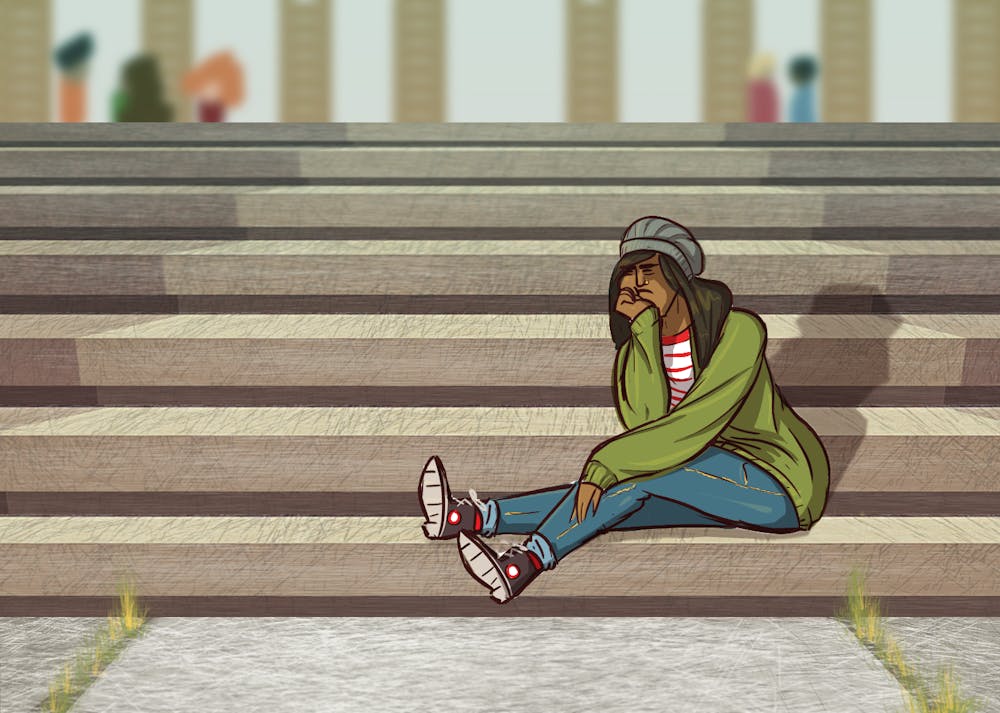"Did you hurt yourself?"
I get this question a lot, whether I'm waiting at an intersection or just minding my business on campus.
Sure, people think there's nothing wrong with asking these questions, but in reality they can take quite a toll on the self-esteem of someone who has a lifelong disability.
I have a condition called spastic diplegia, a variation of cerebral palsy. It affects my lower extremities, causing me to walk slower in an almost penguin-like way. Other than that, I function relatively "normally."
The only issue is most others don't see it this way.
My childhood was different from other children's, to say the least. I spent most of my time wearing casts or being fitted for leg braces; I went to physical therapy instead of joining the peewee soccer league like the other kids.
But it wasn't until first grade when I started to register how "different" from everyone else I really was.
There were kids who would yell at me to get to the back of the lunch line because I was "too slow." I had a teacher who was hell-bent on putting me into a special education classroom because I "wasn't improving enough."
I was 6 years old.
However, I don't think I understood the gravity of the isolation I was feeling until I came to ASU.
At home, the outright comments lessened as I grew up, and any kind of different treatment I received was just chalked up to good old "Midwestern manners."
Everyone was trying to be nice: holding doors, apologizing profusely for bumping into me, among other things.
But at ASU, I started to notice a difference between the new people I met and people I knew growing up who performed these so-called "acts of kindness" in the tones of their voices and looks on their faces.
In my very first week of college, I was waiting for an elevator at Hayden Library, suffering on a particularly hot August day when a girl came up to me and said, "You know you can use the DART service, don’t you?"
I was so taken aback — I didn’t know how to respond.
It was the first time in years someone my age had pointed out my disability. I barely even notice it sometimes, so I stopped considering the fact others might.
I don't know if people are trying to be rude, or if they think they’re being kind. But it's important to note these types of comments make me feel incredibly insecure about myself and my abilities, which are pretty adequate.
Other times, people will come up to me and ask how I got "messed up" or why I'm drunk in the middle of the day.
My only response?
"What is wrong with you?"
While I've grown used to hearing comments like this, it ruins my day. I often get told these things around friends who don't view me as different in any way, so in my eyes it serves as a reminder for them, and me, that I'm not like them — not really.
I often wonder if these kids were ever taught it's not polite to stare? Because news flash: I can see you.
Everyone has bad days where they look in the mirror and don't exactly "feel like themselves." For me, this doesn’t happen in a "my thighs are too big," or "my hair looks awful" way.
It happens in a "Do I look weird? Are people looking?" way. And it's the most frustrating feeling ever.
I see myself as pretty normal. I can do the same things any other 22-year-old does. I have the same interests and the same problems, so my only question is, why am I the outcast?
We live in a society where we're encouraged to be different. But if we're too different, no one wants anything to do with us.
Despite this, I've grown to love all my little quirks over the years. I've found a circle of people who see no difference between me and them, and I am incredibly thankful.
There will always be people who see me as less than them. But do me a favor, and stop looking at me.
Because I'm not looking to judge you either.
Reach the reporter at skenoun@asu.edu and follow @thesabrinakeno on Twitter.
Like The State Press on Facebook and follow @statepress on Twitter.
Continue supporting student journalism and donate to The State Press today.




